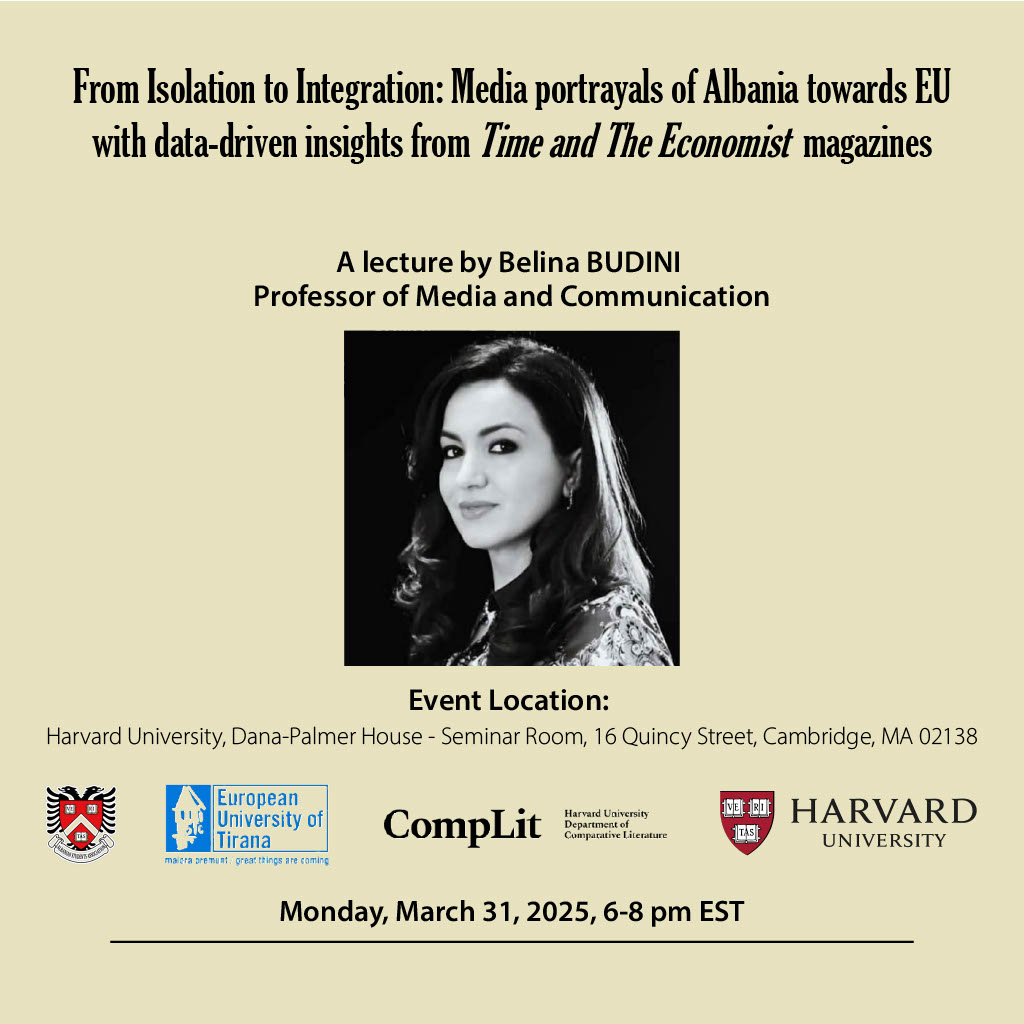
SPEAKER: Belina Budini, Professor of Media and Communication, European University of Tirana
This presentation will explore how the media, particularly Time Magazine and The Economist, has portrayed Albania and the Western Balkan countries, focusing on the long-standing representation of the country and the region as troubled and unusual. By analyzing media archives, my research demonstrates how Albania’s portrayal as chaotic, strange, and perpetually in crisis has shaped both international perceptions of the nation and its people.
The presentation will also highlight how these depictions have evolved over time, from the early discourse of an Albanian anomaly in the interwar period (1924–1944), through the deepened portrayals during the communist regime (1945–1989), to their continuation in the post-communist period and into the present towards the EU integration of the country. Notably, the study compares how Time Magazine and The Economist have represented Albania across these periods, and how these written representations intersect with visual depictions and a growing interest in Albania’s human stories and cultural heritage as a tourist attraction despite ongoing themes of exoticism and political unrest.

Founded as a graduate program in 1904 and joining with the undergraduate Literature Concentration in 2007, Harvard’s Department of Comparative Literature operates at the crossroads of multilingualism, literary study, and media history.
© 2023 President and Fellows of Harvard College
Sign up to receive news and information about upcoming events, exhibitions, and more